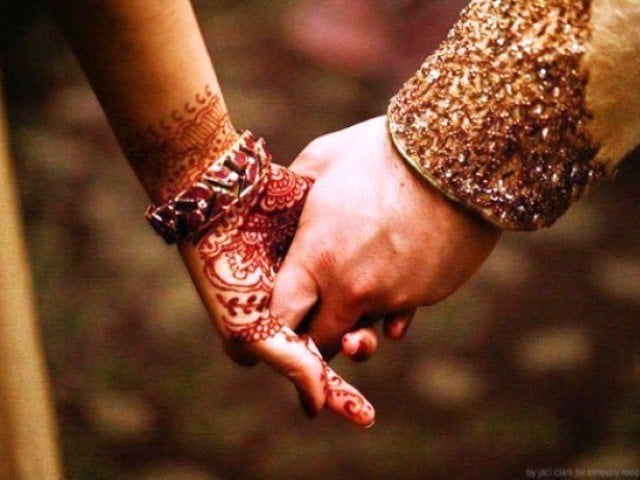
Someone who is probably in the best place to speak about the menace of forced marriage is Maryam*. Even though she is from an educated and financially comfortable family, she was married off to a government officer while in the middle of her undergraduate.
Although the topic may be off limits to discuss even in the safety of most living rooms, she has agreed to share her story.
Halfway through her undergraduate, a marriage proposal landed up at her doorstep. The girl decided to speak her mind and tell her mother she had no desire of tying the knot with the chosen man. All she got in return was a beating from her less-than-understanding father and was stripped of the chance of completing her degree after being taken out of university.
“Islam has given me the right to exercise my choice over whom I wish to marry,” she says. “Why are you denying something given to me by God?” the girl asks. Any logical argument presented on her part to the family was met with violence and coercion.
The coup de grâce was when she was packed off to the house of a man she loathed. Maryam regrets her circumstances to this day, but swallowed the bitter pill to “protect her family’s name in society”. She is not the first person to be caught in the clutches of forced marriage and certainly not the last.
In more educated countries, marriage is seen as the union of two individuals uniting, a decision made of their own accord. However, in an underdeveloped country like Pakistan, many see it as a means of strengthening their financial position or increasing the power they wield.
When either one or both of the individuals slated to be married off to each other disagree with their elders, they are forced into wedlock. In many cases, this is where the nightmare begins and can last a lifetime. Families force their children into these weddings without taking into consideration their financial or social gains are ruining the lives of their own flesh and blood.
University of Peshawar Social Work Department Professor Dr Amir Zada Asad tells The Express Tribune marriages under such conditions are invalid from an Islamic perspective. When asked if his department can take steps to highlight this menace, he says it is helpless. “Present victims to forced marriages are a lost cause. All they can do is raise their voice – that is all.”
Whittling away the right to choose
UoP Islamiat Department Chairman Professor Dr Mairajul Islam Zia says Sharia also does not permit such unions and only extreme conditions may allow flexibility. Even then, if either spouse is dissatisfied with the union, he or she may approach
the court.
Zia points out such instances not only create problems within the bond made, but give rise to other matters plaguing the institution of marriage itself. “It is necessary to call forced marriages valid because otherwise families or society in general create lots of problems.”
There are different types of forced marriages in Khyber-Pakhtunkhwa’s rural societies. Swara is when girls are forcibly married to members of other clans to resolve feuds, while vani involves a girl tying the knot as part of punishment for a crime committed by her male relative(s).
Contrary to popular belief, the plague of forced marriages is not limited to rural areas and is deep-rooted in middle, upper-middle and upper classes of urban societies. The victims of forced marriage are either coerced or coaxed, sometimes both, into conceding.
Several people see sectarian biases as another form of forced marriage. Many a Shia who wishes to marry a Sunni and vice versa will have faced herculean opposition from their families. In Pakistan’s androcentric or patriarchal society, it is usually the girl that is dragged to the stage against her will. Any attempts to challenge the patriarchal hierarchy are labelled unIslamic and the woman is permanently branded as notorious.
Published in The Express Tribune, March 23rd, 2016.
1730464111-0/raygun-(1)1730464111-0-405x300.webp)
1730967569-0/BeFunky-collage-(28)1730967569-0-165x106.webp)
1730967164-0/trump-(21)1730967164-0-165x106.webp)
1730965998-0/BeFunky-collage-(27)1730965998-0-165x106.webp)
1730965430-0/trump-(20)1730965430-0-165x106.webp)






COMMENTS
Comments are moderated and generally will be posted if they are on-topic and not abusive.
For more information, please see our Comments FAQ